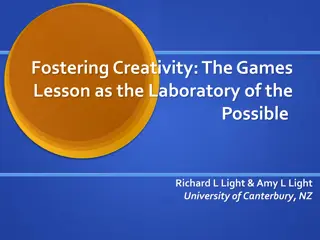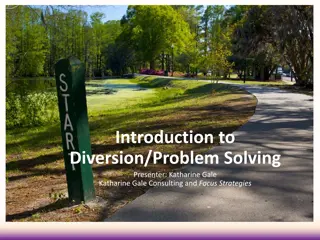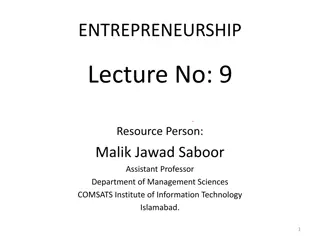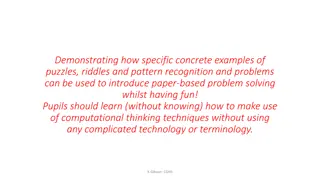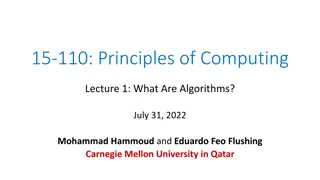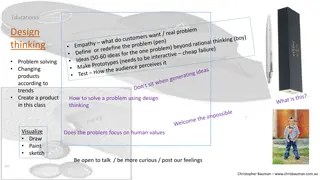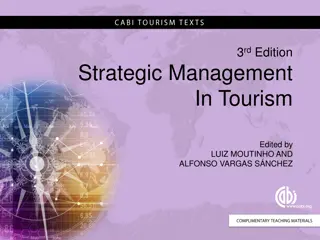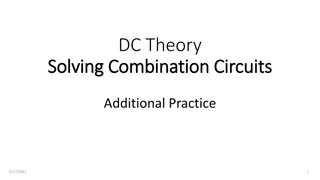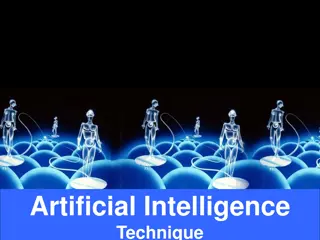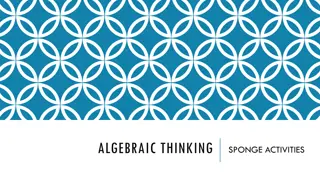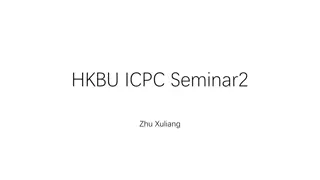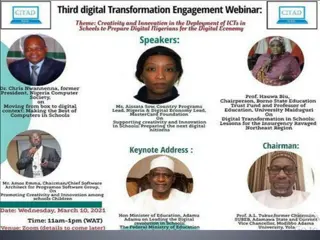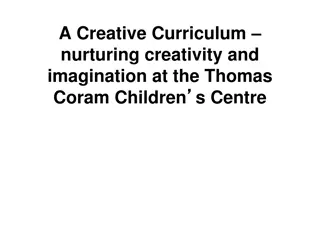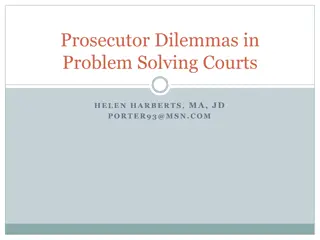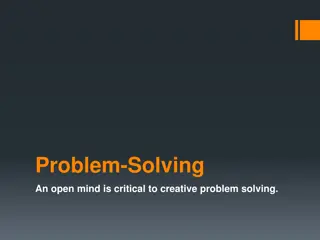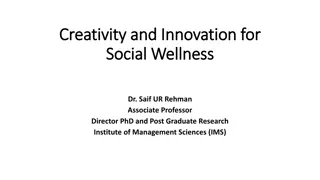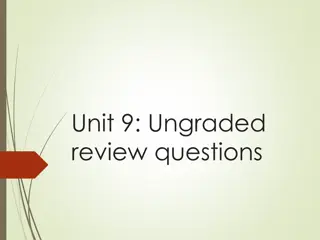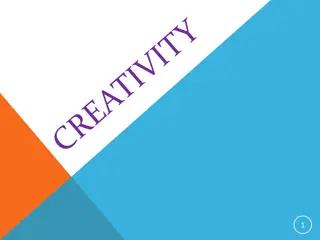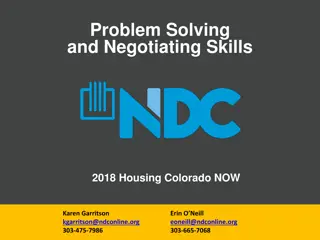Enhancing Creativity and Problem Solving Techniques
Explore key outcomes in fostering creativity, identifying and removing blocks to problem-solving, and understanding the process of generating new ideas through concepts like creativity vs critical thinking and block-busting. Learn strategies including brainstorming, defer judgment, and morphological connections to improve alternative generation in problem-solving. Discover ways to stimulate creativity and enhance innovative thinking in various problem-solving scenarios.
Download Presentation

Please find below an Image/Link to download the presentation.
The content on the website is provided AS IS for your information and personal use only. It may not be sold, licensed, or shared on other websites without obtaining consent from the author. Download presentation by click this link. If you encounter any issues during the download, it is possible that the publisher has removed the file from their server.
E N D
Presentation Transcript
Some Key Outcomes To identify and remove blocks to creativity in solving problems To become aware of ways to foster creativity among others
Creativity GENERATION OF NEW IDEAS THE PROCESS OF ASSOCIATING KNOWN THINGS OR IDEAS INTO NEW COMBINATIONS AND RELATIONSHIPS CREATIVE VS. CRITICAL THINKING
Conceptual Blocks that Inhibit Creative Problem Solving
Conceptual Blocks that Inhibit Creative Problem Solving
Block Busting Block Busting
Defer Judgment (Brainstorm) No evaluation of any kind as alternatives are generated Wildest possible ideas are encouraged Quantity of ideas takes precedence over quality Participants should build on or modify ideas of others Improving Alternative Generation Expand Current Alternatives Divide the problem into smaller parts For example: (1) How many uses can you generate for a ping pong ball? (2) Now identify specific characteristics of ping pong ball (weight, color, texture, etc.) how many more alternative uses can you think of?
BRAINSTORMING AND NOMINAL GROUP TECHNIQUE (NGT) Agree on the problem definition Write down all ideas Use round robin to allow participation After sharing and rewriting ideas, review each idea one at a time Vote (secret, rank vote) Review the voting pattern
Improving Alternative Generation Morphological Connections This is all about connecting the various sub-components of the problem in different ways 1. List the attributes of the situation 2. Below each attribute, place as many alternates as you can think of 3. When completed, make many random runs through the alternates, picking up a different one from each column and assembling the combinations into entirely new forms of your original subject. Example -> Image source: https://flylib.com/books/en/2.890.1.198/1/
How might I improve the marketing of my latest book? improve/behind/book improve/beyond/book improve/when/book improve/during/book Some possibilities: Behind: make prominent mention of my previous (best-selling) book in the campaign, so search engines will pick up both references When: Include a coupon for a discount of my previous book During: Offer free information from the book on my website and in my newsletter Beyond: schedule my Facebook and Twitter updates to reach more time zones Beyond: include interactive games based on my book on my website Improving Alternative Generation Relational Algorithms Relational Algorithms combines elements from the problem statement with randomly chosen words from a set. 1. Start with your problem definition. 2. Identify the action verb and object. 3. Finally, insert a relational word between the two words you have underlined. Example -> Example Source: https://www.psychsoma.co.za/syntarotis/2012/01/relational- algorithms-a-problem-solving-technique.html/
Creativity is a process, not a trait or an outcome Creativity: Some Conclusions Creativity is frequently a team variable requires attention to different roles, styles, and power relationships Creativity can be learned/refined/encouraged
Defining problems incorrectly Four Major Creativity Mistakes Judging ideas too quickly Stopping with first good idea Failing to get a sponsor
Give yourself some relaxation time Find a place where you can think Hints for Skill Application Talk to others about ideas Ask others about your problem Read (unrelated) a lot! Protect yourself from idea killers!
You will win some. You will lose some. Only mediocre people are always at their best! Somerset Maugham (Quoted in Miller, The Creative Edge: Fostering Innovation Where you Work, Reading, MA: Addison Wesley, 1987, p.17)


